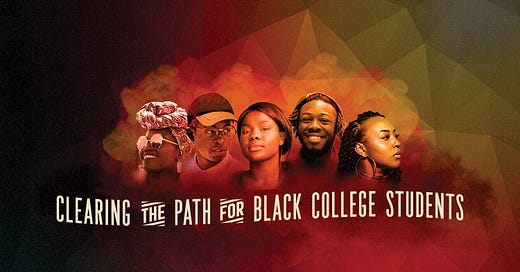Roadblocks Don’t Have to Be Dead Ends: On Clearing the Path for Black College Students by Tamice Spencer-Helms
Roadblocks Don't Have to Be Dead Ends: On Clearing the Path for Black College Students
by Tamice N. Spencer
College life is stressful. Different rules. New people. Unfamiliar surroundings. From the founding of the first institution of higher learning in America in 1636, college was an incubator for personal, professional, relational, and spiritual development. That's why it is a travesty that white student enrolment continues to surpass that of students of color.
Until fairly recently, few faith-based organizations have taken the time or made an effort to exclusively examine the unique stressors facing Black College Students. At Sub:Culture, we acknowledge that spiritual, cultural, economic, and academic challenges are not unique to any college student. Each problem is experienced by a particular student at one time or another. But for students of color, all four stressors seem to happen — simultaneously. Sub:Culture Inc. is dedicated to researching these challenges and helping students…
Keep reading with a 7-day free trial
Subscribe to Tamice Namae Speaks to keep reading this post and get 7 days of free access to the full post archives.




